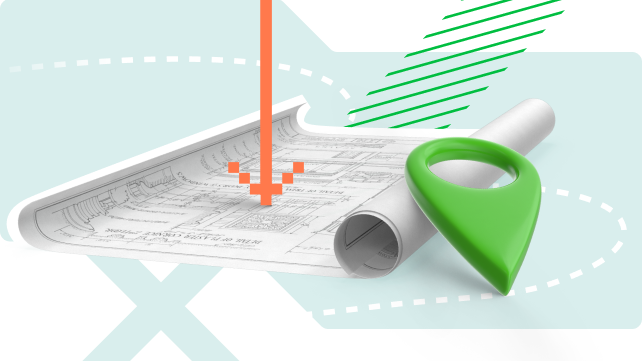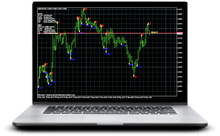Common Trading Mistakes and How to Avoid Them

Have you ever wondered what helped all those professionals of Wall Street become successful? You will be surprised, but the key to their reached heights is hidden in their mistakes. Yes, that is right. Most professional and successful traders made many mistakes before they got to the top.
Making mistakes is ordinary and sometimes even necessary because you learn when you make them. The crucial point of this idea is never to repeat those mistakes because some errors may cost us a fortune. That is why we gathered 10 most common trading mistakes to prevent you from faults and losses.
Top 10 mistakes every novice trader makes
Little preparation
Entry to the Forex market is relatively easy, so people have a light-minded attitude towards trading knowledge. Beginner traders, especially, think that theory is not a big deal, and they will be able to build it up without a peep. However, it does not work this way.
Without a good base, you will not produce an adequate trading plan or may miss the signals about good and bad trades. Lack of basic Forex knowledge always leads to unpleasant consequences.

Trading without a plan and strategy
It is quite common among newbies to enter the Forex market and start trading recklessly some instruments only because they like those assets. Moreover, beginner traders often base their actions on some strategy only because they understand it better.
Intuitive and unsystematic trading may not end in your favor, even if it benefits at first. Without a plan and strategy, you might panic when your hopes and likes deceive your expectations. It might lead to hasty market decisions resulting in trading mistakes.
Miscalculating the risk/reward ratio
The risk/reward ratio is the difference between a trade entry point to the Stop Loss and Take Profit orders. It is used to compare the expected returns of a trade with the risk taken to get these returns.
For some reason, many traders believe that higher win trades are more profitable than lower ones. Sometimes, this idea even gets paid off, and due to blind luck, trades, where the potential risk exceeds the reward, benefit. However, in most cases, such trades are a sure way to lose money in the longer term.

Avoiding risk management
Risk management should be the core of your trading because it helps cut down losses. Trading without risk management is like skydiving without a parachute.
There are several ways and techniques to protect yourself from losing money and not miss the chance to close deals profitably.
Neglecting market events
Relevant market news is essential as economic events influence the direction of trading during the day. So, if you are not aware of the financial reports or earnings, you might skip the volatility.
On the other hand, excessive focus on news may also harm. Right after the release, the spread between the bid and ask price is often way higher than usual. This makes it hard to find the liquidity to leave the position at your preferred price.

Ignoring trends
Avoiding trends may have a severe outcome. Trading against the trend is too risky for new players, especially beginner traders. Besides, trading trends is simple. All you need to do is enter the trade and hold to it while it makes you money.
Not keeping a trading journal
Whether a beginner or experienced, each trader needs to work over their trading mistakes. Writing down all your deals, both ups and downs, helps see which actions have led to consequences. Thus, you will be able to analyze when your trading strategy becomes irrelevant.
If you ignore post-trading analysis, be ready for a short ride on the Forex market. You cannot make a quality plan for the next day if you skip the part where you see and understand what mistakes you made.
Wrong timing
You all know that time is money. It is especially true for trading. If you are new to the Forex market, do not let yourself make decisions based on intuition — buy and sell based on the expected price changes. Low timeframes interfere you from distinguishing day trends. You may miss all good opportunities to succeed.
Getting emotional
Remember those movies depicting traders crashing their laptops when their trades do not go as expected? Some other traders give in to panic facing an ineffective plan, and start acting irrationally, trying to regain losses. Greed and panic make you overtrade, trade aggressively, or close profitable trades earlier.
However, even positive emotions like overwhelming joy and triumph of a successfully closed order can be a serious stumbling point on your way to achieving success.
Trading for fun
As said above, trading is a business, and each trader’s goal is to make money. Set your goals and go for your financial freedom. If you feel bored or do not feel like trading at all, give yourself a break. Do not let Hollywood movies mesmerize you. Take trading seriously, and it will give you the possibility to be closer to your dream.

How to avoid trading mistakes
Get prepared
Many successful traders start their financial education long before coming to the Forex market. Do not worry, though. You do not need a degree to start trading. Nobody will put pressure on you if you do not know trading strategies or patterns. Nevertheless, to show good results, you need to understand what you are doing.
Find time to dive into Forex and develop your skills. Whether you study some financial theory during the weekends or only half an hour each day, make sure you do this constantly and persistently.
So, how to prepare yourself for trading and get acquainted with the Forex market? The best and easiest way is to find a reliable broker. As a rule, they do not just provide people with platforms for trading. Brokers supply their traders with educational sessions, like free webinars, online courses, etc.
Plan a trade and trade a plan
Approach trading as a business — do research, fix targets, make a strategy to achieve set goals, consider the sum you are convenient to lose, etc.
Nowadays, you can even test your trading strategy and its potential before risking your money. Some brokers offer a Demo account to their traders.
In other words, a thorough plan prepares you not to fall into the clutches of panic in case the market situation changes. So, work out a plan and stick to it.
Consider the risk/reward ratio
Calculating the risk/reward ratio is a rule that every trader should take into consideration, whether a beginner or professional. Before making a trade, determine the potential reward. It always should be more significant than the potential risk.
So, to calculate the ratio, you need to divide the difference between the entry point of a trade and the Stop Loss order (the risk) by the difference between the profit target and the entry point (the reward). If the result is greater than 1.0, the risk is greater than the reward.
Manage risks
Make a positive and strategic approach to risk management. Use appropriate leverage, examine the benefits of Stop Loss and Take Profit, watch the number of deals and prices. All of this helps prevent and reduce losses.

Mind economic news and events
Check out fresh news and economic events to be abreast of the latest possible changes and get ready to make moves. Create a strategy that considers volatility.
Not to miss the crucial moments that might affect your trading, monitor the Economic Calendar, and Forex News.
Follow trends
First, you need to identify a trend to benefit from it. Spotting a trend is easy; just look at the chart and see if the market goes up or down. See how others use trends and act accordingly to the minimum 4-hour trend to have a clear vision of the process. Let yourself go with the flow.
Record your mistakes
A trading journal is good for seeing the whole picture. Yes, it might seem tedious, but it is unbelievably helpful as it gives you insights into your strengths and weaknesses as a trader. Recording your fails and wins is a great way to learn about your way of trading and the market itself.
Apply market timing
It is essential to define a timeframe before you enter a position. Timing can help understand if a trade works out or not. Make technical and fundamental analysis. That allows you to see widespread patterns in making mistakes.
Trade with your head, not with your heart
Never let your emotions overrule the mind. Any financial market is an actual battlefield where bulls and bears fight over the asset and stock prices. The same fight happens inside you when you see that the plan does not work out the way you expected.
Any emotion is a fast way to poverty. Learn to harness them. Stay focused on the big picture and set realistic goals. You cannot become a billionaire by Friday.
Think of trading as a business
If you have already entered the Forex world, you are ready to make carefully weighed decisions to go to the top. Set up your mind for success and overcome all the obstacles.
Bottom line
You cannot learn signing without miscarrying the tune. Finally, when it comes to success, you will talk only about your victory, avoiding mentioning the misfortunes and hardships. The same principle works for traders. Trading is a craft, and traders need to polish their skills and knowledge in overcoming obstacles.
However, why make mistakes if you can avoid them, especially when money is at stake. Save this summary table to put yourself on guard against trading errors and potential losses.
|
Trading mistake |
How to avoid it |
|
Little preparation |
|
|
Trading without a plan and strategy |
|
|
Miscalculating the risk/reward ratio |
|
|
Avoiding risk management |
|
|
Neglecting market events |
|
|
Ignoring trends |
|
|
Not keeping a trading journal |
|
|
Wrong timing |
|
|
Getting emotional |
|
|
Trading for fun |




